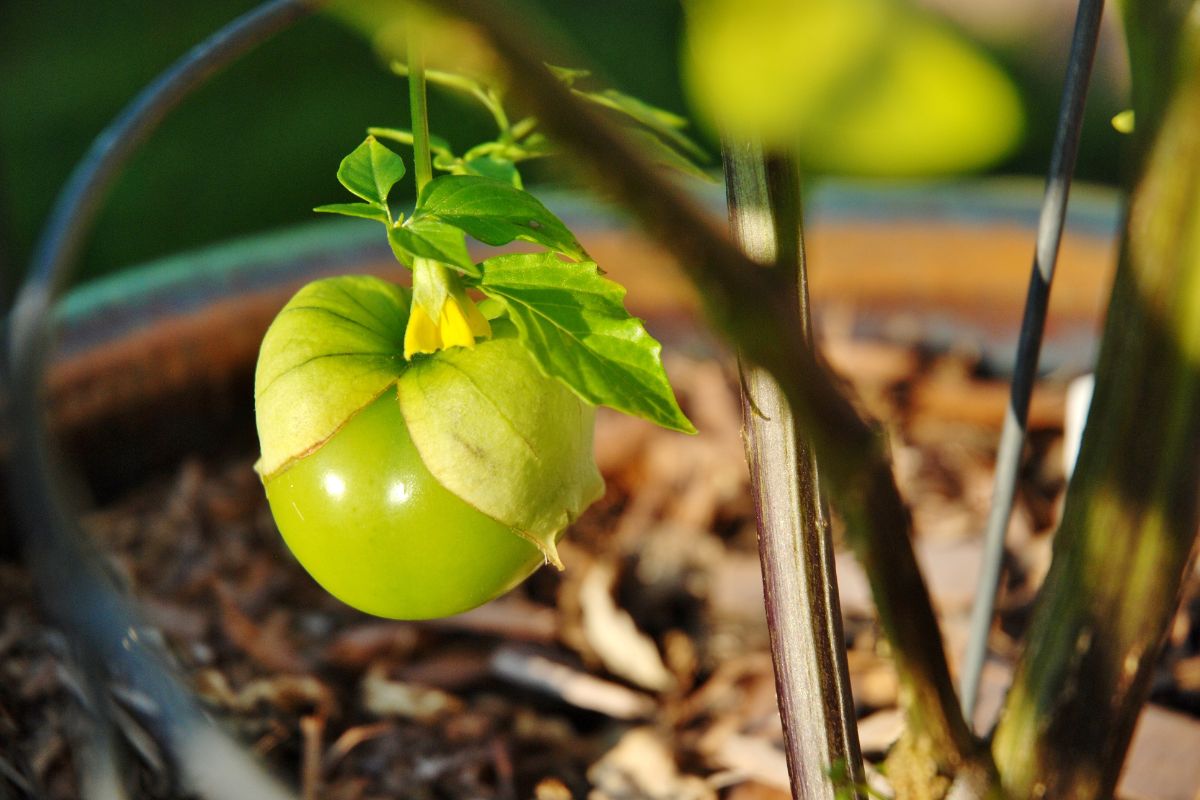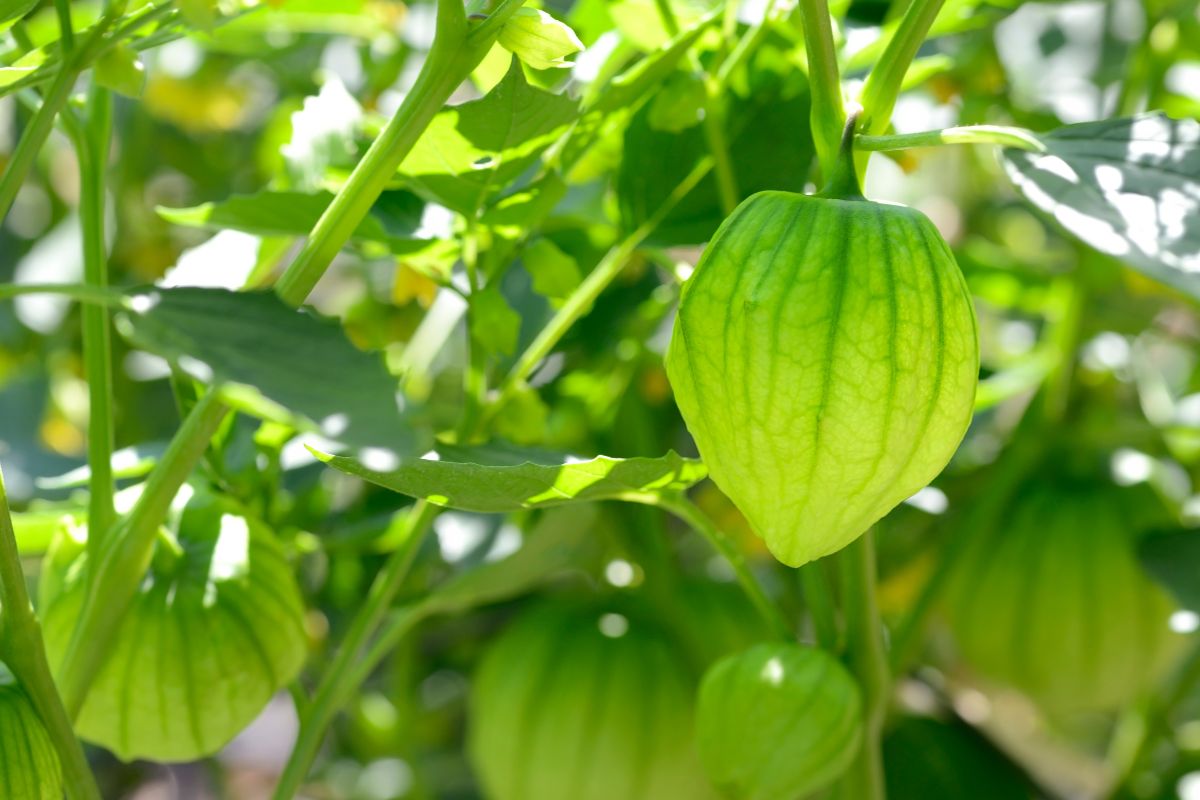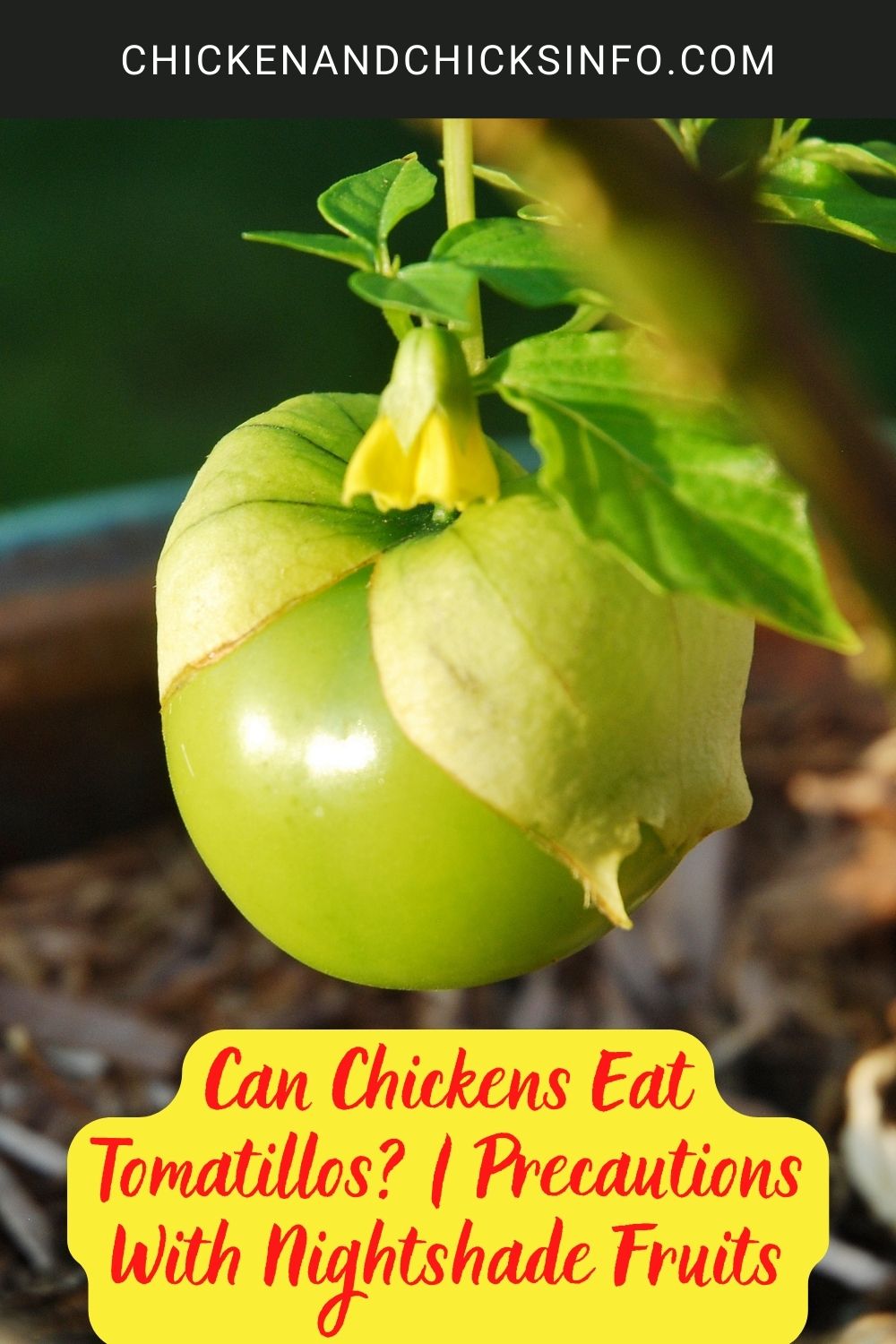
Chickens can eat ripe tomatillos just fine. A word of warning, however, tomatillos are part of the nightshade family of plants. Unripe fruit and parts of the plant; such as the leaves, husk, and stem may contain a toxin called solanine.
Jump to:
Are Tomatillos Healthy for Chickens?
Popular in Mexican cuisine - and in our household - tomatillos are interesting fruits. First of all, they’re very different from tomatoes, despite having a similar name.
According to USDA, tomatillos are sodium-free, while being rich in a range of vitamins, minerals, and provide a decent amount of fiber.
Backyard chickens get most of their dietary needs met from a good commercial feed. Fruits like tomatillos are a great addition to their overall diet, but they are “treat” to be fed in moderation.
If you grow or use tomatillos, they’re fine for chickens. There are some precautions to be aware of, however, as I’ll explain.
Are Tomatillos Poisonous to Chickens?

Tomatillos are members of the nightshade family of plants and vegetables. This means they can produce a toxin called solanine, and you do need to be careful when preparing and feeding them to your chickens.
In fact, you need to be careful when eating them yourself too! Solanine is also toxic to humans.
Generally speaking, the stem, leaves, and husk are likely to contain the toxin. When the fruit is ripe, the papery husk which looks like a lantern will loosen to reveal the fruit.
This also leaves a sticky residue on the fruit, make sure you thoroughly wash all of this residue off too.
You should only eat and give ripe tomatillos to your chickens. They can range in color from yellow to green and even purple. If you’re not sure how to check your fruits are ripe, I’d ask someone at your local farmer’s market or store to be on the safe side.
Solanine poisoning can be very serious. Wikipedia lists the symptoms as ranging from stomach cramps and vomiting to burning, headaches, dizziness, inflammation, and worse.
Some Foods That Are Good for Chickens
While you have to be careful with tomatillos and other vegetables in the nightshade family, there are plenty of foods that are perfectly fine for chickens.
Here are some of the most common foods backyard chicken owners
Vegetables
I think leftover vegetables or the parts we don’t eat are a staple for backyard chooks. Mine usually get some leftover beets, peas, broccoli, cauliflower, sweet potatoes, squashes, etc.
Fruits

Fruits are a great source of vitamins, minerals, and antioxidants and easy to feed to chickens. If you have a fruit-bearing tree in your yard, even better.
Grains
Grains, like wheat, corn, barley, etc provide good nutrition too. They’re commonly found in feeds and scratch for this reason, and they encourage chickens to forage.
Some Foods That Are Bad for Chickens
Now you know the risks associated with tomatillos, here are some of the other foods that are potentially dangerous to chickens:
Other Nightshade Vegetables - As I explained with tomatillos, nightshade vegetables produce a toxin called solanine to protect themselves against being eaten by pests.
Other common vegetables in the nightshade family include, peppers, eggplants, tomatoes, and potatoes.
To find out which parts of the plants and vegetables are safe, I recommend looking into this food group in more detail.
Raw Beans – This is probably the number one food backyard chicken owners need to be aware of. Raw beans contain lectins, which even in small amounts can be fatal to chickens.
Related - How to make sure chickpeas and lima beans are safe for your chickens.
Chocolate – The bad news is that there are compounds in chocolate that are toxic to chickens; theobromine and caffeine. The good news is you get to keep all the choccy treats to yourself.
Coffee and Tea – Caffeine and other compounds in teas and coffee are bad for chickens. It’s not as if your flock will drink a brew, but a lot of people recycle tea bags and coffee grounds in their garden.
Avocado Pits/Skin – The dangers of avocado is well-known to most pet owners. It’s OK for chickens to eat the flesh, but the skin and pit contain a fungicidal toxin called persin.
Sugary, Greasy, Fatty Foods – While not toxic or harmful per se, bad foods like fast food, soda drinks, candy, etc are all bad for chickens. They can find these foods hard to digest, and with so many better treats it’s not worth it.
In Summary
Tomatillos are one of the more interesting and unique tasting fruits. Being a fan of Mexican cuisine, I’m no stranger to them. But, it comes as a surprise to most people that the plants are toxic.
If you’re not a fan and would rather give them to your chickens, as long as you take all the precautions I covered above you should do so.
The risk of poisoning is low, but it’s always best to err on the side of caution with chickens. Don’t forget, they’re a lot smaller than us and can be affected by smaller amounts of toxins.
Resources
List of Nightshades Foods and Why You Might Want To Avoid Them - HealingAutoimmune.com
What are tomatillos? - IsabelEats.com





